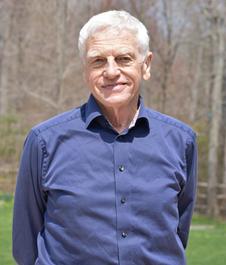Author Peter Lovesey, who "was a pioneer of the period whodunnit, as the creator of the Victorian sleuth Sergeant Cribb," died April 10, the Telegraph reported. He was 88. "Although there had been a few one-off historical mysteries before the advent of Lovesey in the 1970s (including Agatha Christie's Death Comes as the End, set in Thebes in 2000 BC), he was generally regarded as the first author to set a successful detective series in the past."
 |
|
| Peter Lovesey | |
Lovesey's Cribb novels focused on facets of late Victorian life: the music hall (Abracadaver), the underground bare-knuckle boxing circuit (The Detective Wore Silk Drawers), Irish nationalist terrorism (Invitation to a Dynamite Party) or the boating craze that followed the publication of Jerome K. Jerome's bestselling Three Men in a Boat (Swing, Swing Together). "The crimes were investigated by Sergeant Cribb, one of the detectives at the creation of the CID in 1878, and his assistant Constable Thackeray," the Telegraph wrote. "Much of the sardonic comedy that characterized the books came from genteel murder suspects finding themselves brusquely questioned by working-class officers."
Although the series ended after eight books, the detective reappeared in Granada television's Cribb (1979-81), with several of the scripts co-written by Lovesey and his wife Jacqueline. Starring Alan Dobie and William Simons, the show was also popular in the U.S., where it was nominated for Emmy awards. Other historical crime novels by Lovesey include three featuring "Bertie"--the future Edward VII--as an amateur detective; and The False Inspector Dew (1982), which was awarded the CWA's Gold Dagger for crime novel of the year.
Lovesey's 1991 novel The Last Detective had a contemporary setting, in Bath, and introduced tough cop Peter Diamond. The success of the novel led the author to focus on Diamond for the rest of his career. Last year he published the 22nd Diamond novel, Against the Grain.
In a tribute, Soho Crime wrote: "In addition to the scope of his unparalleled crime fiction career, Peter Lovesey will be remembered by his many grieving friends as the paragon of decency, compassion, loyalty, self-discipline, and pride in good work--in short, a human example of what it means to live a good life. We at Soho Press have been privileged and honored to be Peter's American publisher for over 30 years, beginning with his now-classic The Last Detective. Fifty years after the publication of his own prize-winning debut, Wobble to Death, Peter collaborated with Soho Crime to sponsor his own first novel contest, launching the career of Edgar-winner Eli Cranor with the publication of Don't Know Tough. A lifelong member of the Detection Club, Peter was respected as a scholar and advocate of the genre as well as a mentee and supporter of new writers. His absence will be deeply felt but the legacy of his remarkable life and work will live on."
Lovesey's many honors and awards include the Mystery Writers of America Grand Master Special Edgar and the Crime Writers' Association's Cartier Diamond Dagger for Lifetime Achievement. In addition to his Gold Dagger for The False Inspector Dew, he received three Silver Daggers (for Waxwork, The Summons, and Bloodhounds); multiple Macavity (Bloodhounds, The House Sitter), Barry (Bloodhounds), and Anthony Awards (The Last Detective); and nominations for the Edgar Award for Best Novel (The Summons) and Los Angeles Times Book Prize (The House Sitter). He received the 2014 Strand Lifetime Achievement Award, the 2010 Grand Master Award from the Swedish Academy of Detection, and the 2008 Malice Domestic Lifetime Achievement Award.
In a Crime Writers' Association tribute to Lovesey, Martin Edwards wrote: "Peter has left a wonderful legacy in the shape of so many fine novels and stories. He is a great loss, above all to Jax and the rest of the family, including his son Phil (another extremely talented writer, by the way), as well as to his many friends around the world. I'm privileged to have been one of them."

